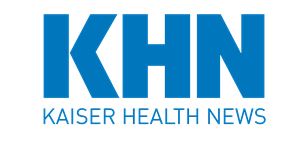
Suzanne BeHanna initially turned down an experimental but potentially lifesaving cancer treatment.
Three years ago, the newlywed, then 62, was sick with stage 4 lymphoma, sick from two failed rounds of chemotherapy, and sick of living in a trailer park near the University of Texas MD Anderson Cancer Center in Houston. It was fall 2019, and treatment had forced her to migrate 750 miles east from rural New Mexico, where she’d settled only months before her diagnosis.
Chimeric antigen receptor T-cell therapy might have been appealing to BeHanna if it were available closer to her home. But it is offered only at major transplant hospitals.
BeHanna had been living in Houston for six months, suffering through chemotherapy that made her feel awful and didn’t stop her cancer. She wanted to go home to die, but her husband wanted her to give CAR T-cell therapy a chance if her doctor would approve it.
The therapy uses a patient’s T cells, a key part of the immune system, to fight cancer. Dr. Michel Sadelain, an immunologist at the Memorial Sloan Kettering Cancer Center in New York and a pioneer of the therapy, describes it as “a living drug — a T cell which has been weaponized against cancer.”
The treatment uses a process called apheresis to extract T cells from the patient and then genetically modifies the cells to add a receptor, the chimeric antigen, which binds with the cancer cells.
Making CAR T cells takes about 10 days, but because only three companies — Bristol Myers Squibb, Gilead Sciences, and Novartis — have FDA approval to produce them commercially, receiving the cells back for infusion can take up to a month. Once in the patient’s bloodstream, the CAR T cells multiply, recognize cancer cells, and kill them. If the therapy works, the patient’s cancer is usually in remission within a month.
For about 10 years, oncologists have used CAR T-cell therapy in clinical trials for patients with blood cancers — including BeHanna, who has diffuse large B-cell lymphoma, and others with lymphoblastic leukemia and multiple myeloma. But until recently, it was FDA-approved only for those who had already had two unsuccessful rounds of more conventional treatment, like chemotherapy. For some types of blood cancer, the therapy leads to remission in more than half of patients. In April, for the first time, the FDA approved CAR T-cell therapy for lymphoma patients whose cancer recurred within 12 months after only one round of more conventional treatment.
That more people will be eligible for CAR T-cell therapy seems like good news, but Dr. Jason Westin, an oncologist at MD Anderson, isn’t immediately optimistic. Westin, chair of the American Society of Clinical Oncology’s government relations committee, is concerned that as more patients become eligible, the cost — $375,000 to $475,000 — will strain the ability of insurers to support it.
